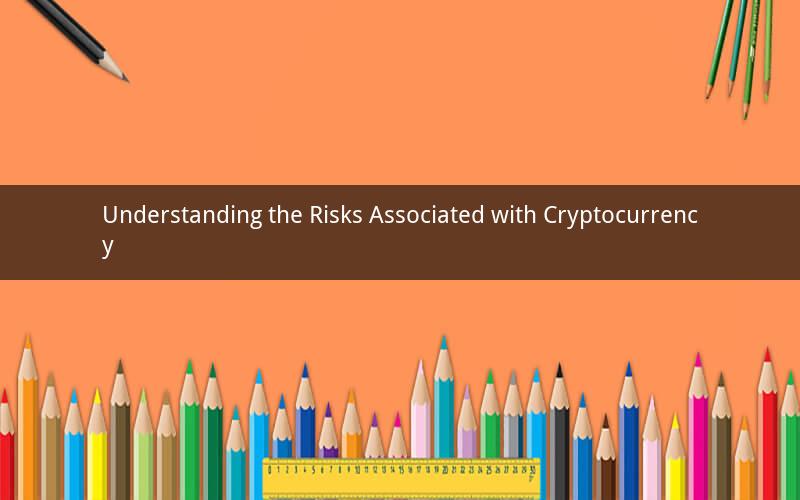
In recent years, cryptocurrency has become an increasingly popular investment option. However, it is essential to understand the risks involved before jumping into the world of digital currencies. This article explores the potential dangers of investing in cryptocurrency, providing insight into the volatile nature of these digital assets.
1. Market Volatility
One of the most significant risks associated with cryptocurrency is its extreme volatility. Unlike traditional fiat currencies, which tend to have more stable value, cryptocurrency prices can fluctuate dramatically in a short period. This volatility can lead to significant gains or losses for investors, making it a high-risk investment.
2. Security Threats
Cryptocurrency relies on blockchain technology to secure transactions. While blockchain is generally considered secure, it is not immune to hacking and other cyber threats. Hackers can target exchanges, wallets, or individual users, potentially leading to the loss of funds. It is crucial for investors to take proper security measures, such as using secure wallets and two-factor authentication, to protect their assets.
3. Regulatory Uncertainty
Cryptocurrency operates in a regulatory gray area in many countries. This uncertainty can pose risks for investors, as governments may implement strict regulations or even ban the use of digital currencies. These changes can impact the value of cryptocurrencies and the ability of investors to withdraw their funds.
4. Market Manipulation
The cryptocurrency market is relatively young and lacks the same level of regulation as traditional financial markets. This lack of oversight can make the market vulnerable to manipulation. Large players, such as exchanges or influential investors, can manipulate prices by buying or selling large amounts of cryptocurrency. This can lead to misleading price signals and make it challenging for small investors to make informed decisions.
5. Limited Acceptance
Despite the growing popularity of cryptocurrency, its acceptance as a legitimate form of payment is still limited. Many businesses and countries have yet to adopt cryptocurrency, making it difficult for investors to use their digital assets for everyday transactions. This can affect the long-term viability of cryptocurrencies and their value.
6. Lack of Consumer Protection
In traditional financial markets, consumers are protected by various laws and regulations. In the cryptocurrency space, there is often a lack of such protection. This means that if an investor loses their funds due to a fraudulent scheme or a failed exchange, they may have limited options for recovery.
7. Technological Risks
Cryptocurrency relies on complex technology, which can be prone to errors or vulnerabilities. Bugs in the code can lead to unexpected behavior, such as wallet failures or incorrect transactions. Additionally, advancements in technology can render certain cryptocurrencies obsolete, affecting their value.
8. Scams and Fraud
The cryptocurrency market has been targeted by numerous scams and fraudulent schemes. Investors must be cautious of Ponzi schemes, phishing attacks, and other fraudulent activities that can result in the loss of their funds.
In conclusion, while cryptocurrency offers the potential for high returns, it also comes with significant risks. Investors should carefully consider the following questions before investing in cryptocurrency:
1. How can I mitigate the risks associated with market volatility?
Answer: Diversify your portfolio, invest only the amount you can afford to lose, and stay informed about market trends.
2. What steps can I take to ensure the security of my cryptocurrency assets?
Answer: Use secure wallets, enable two-factor authentication, and be cautious of sharing your private keys.
3. How can I stay informed about the regulatory landscape surrounding cryptocurrency?
Answer: Follow news and updates from relevant government agencies and stay informed about any proposed legislation.
4. How can I protect myself from market manipulation in the cryptocurrency market?
Answer: Conduct thorough research, avoid making impulsive decisions, and stay informed about potential manipulation tactics.
5. What measures can I take to minimize the risk of falling victim to scams and fraud in the cryptocurrency space?
Answer: Educate yourself about common scams, be cautious of unsolicited offers, and never share sensitive information with strangers.